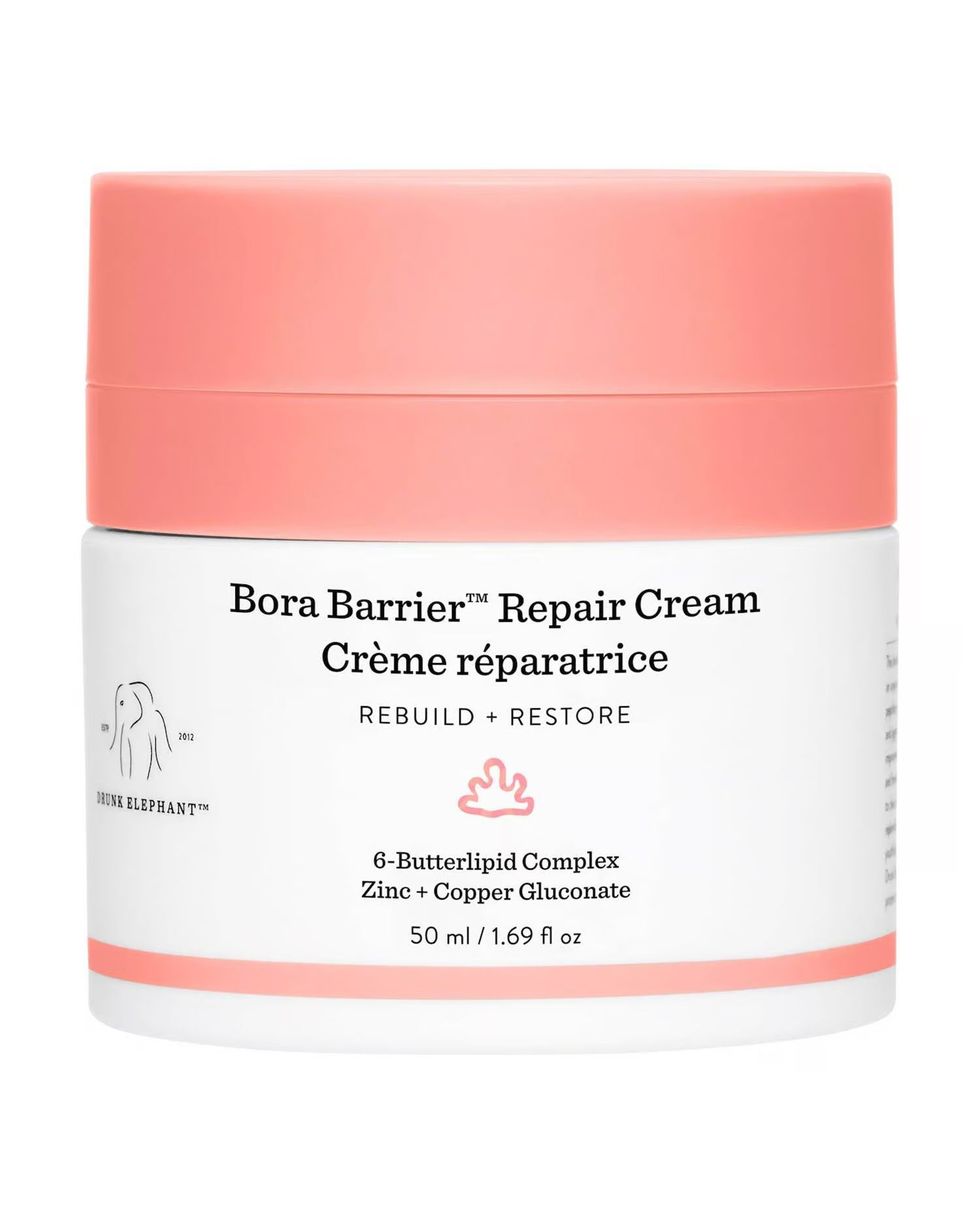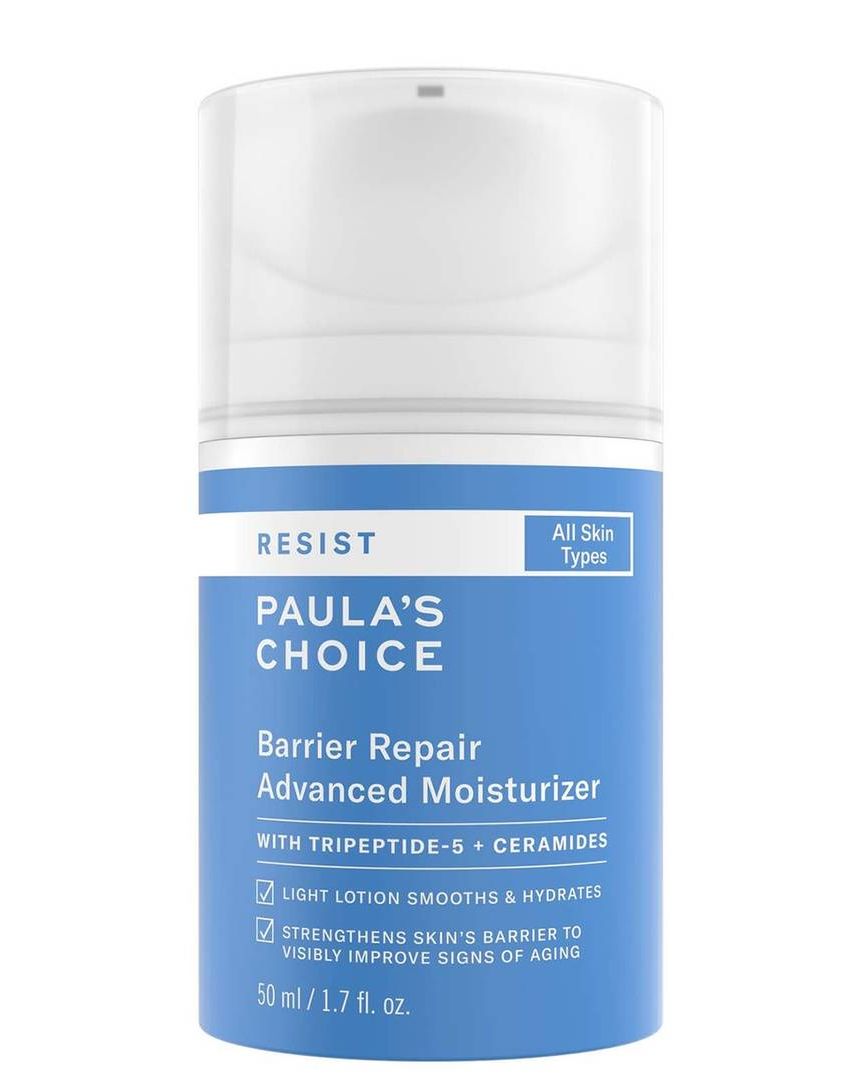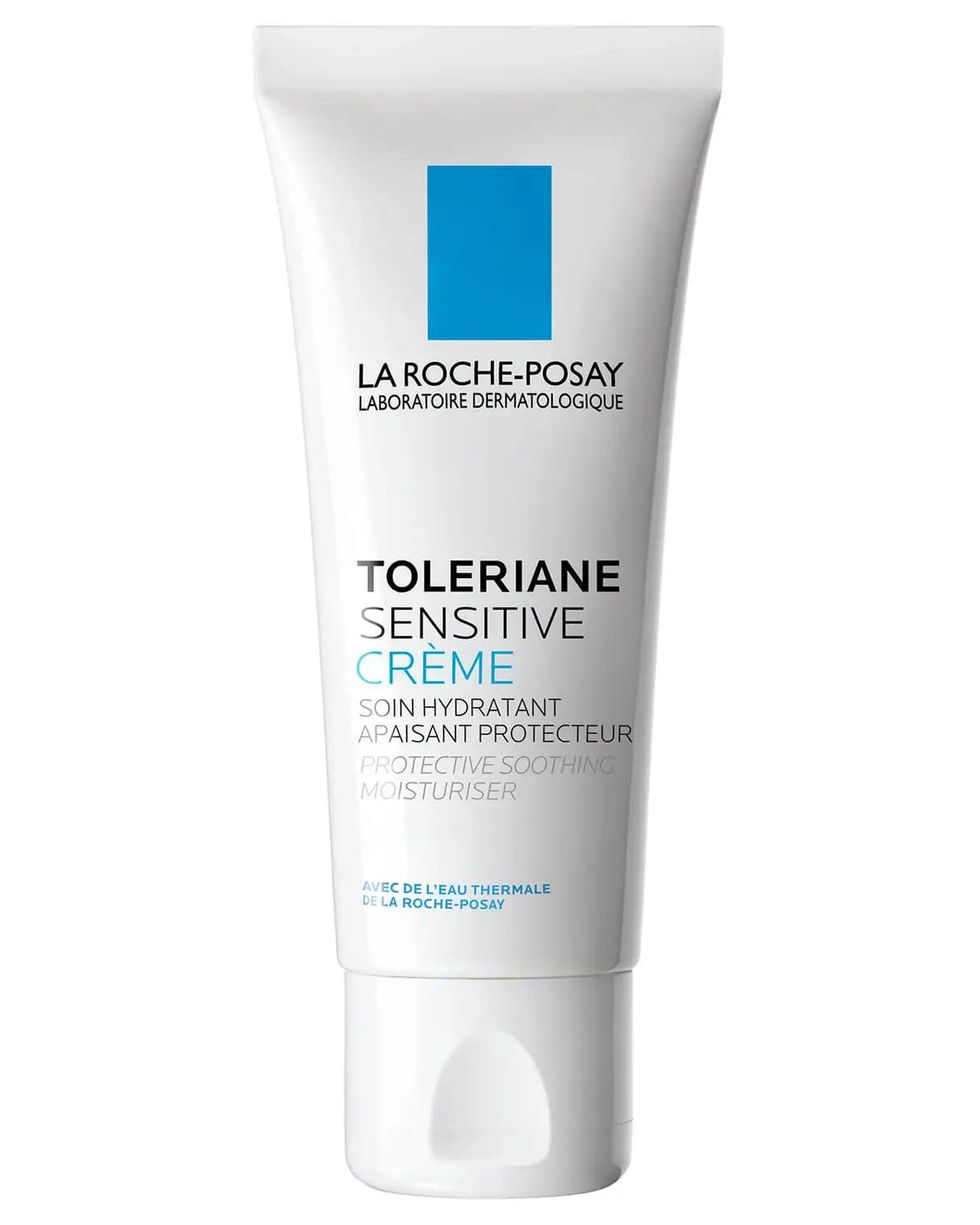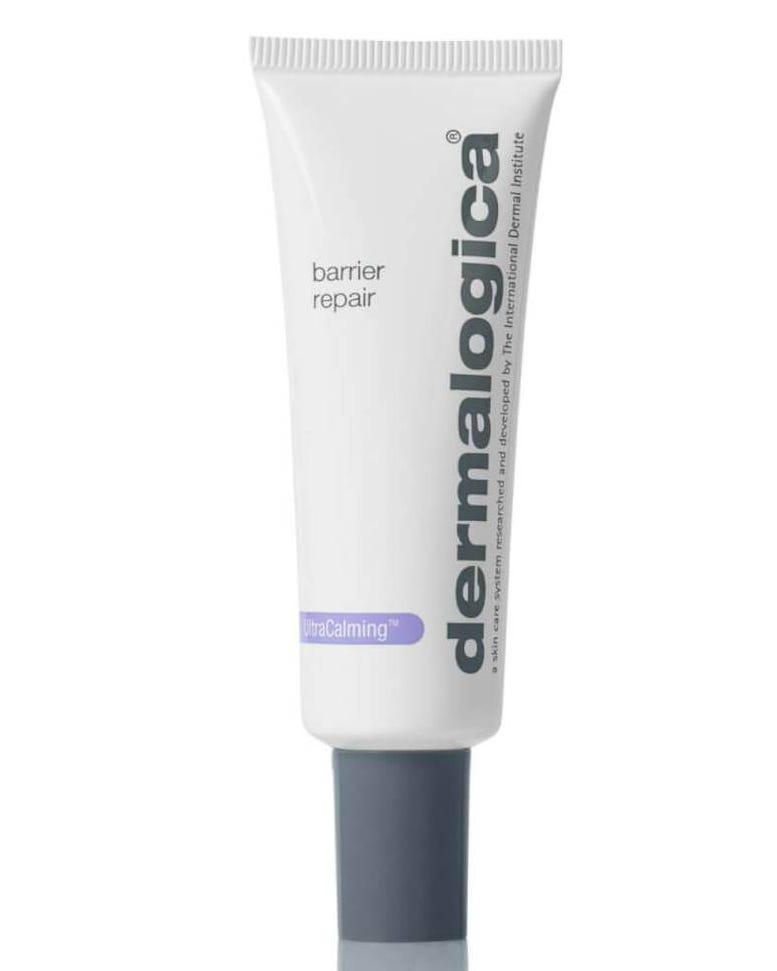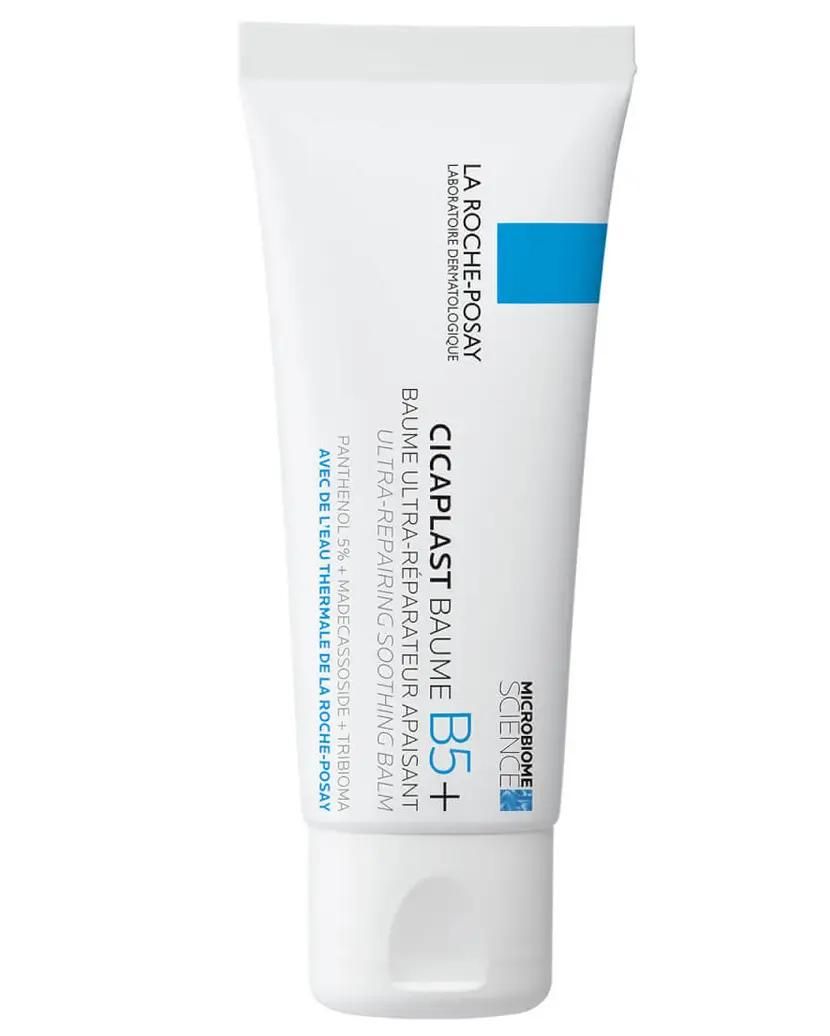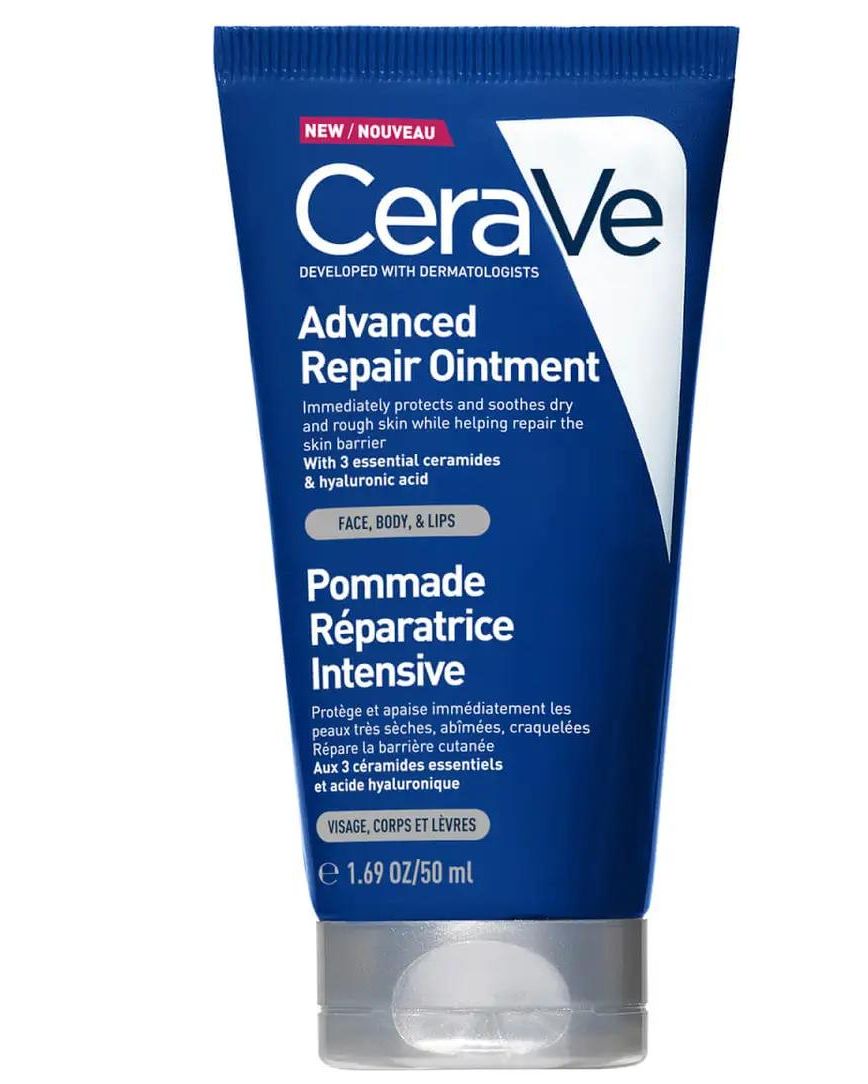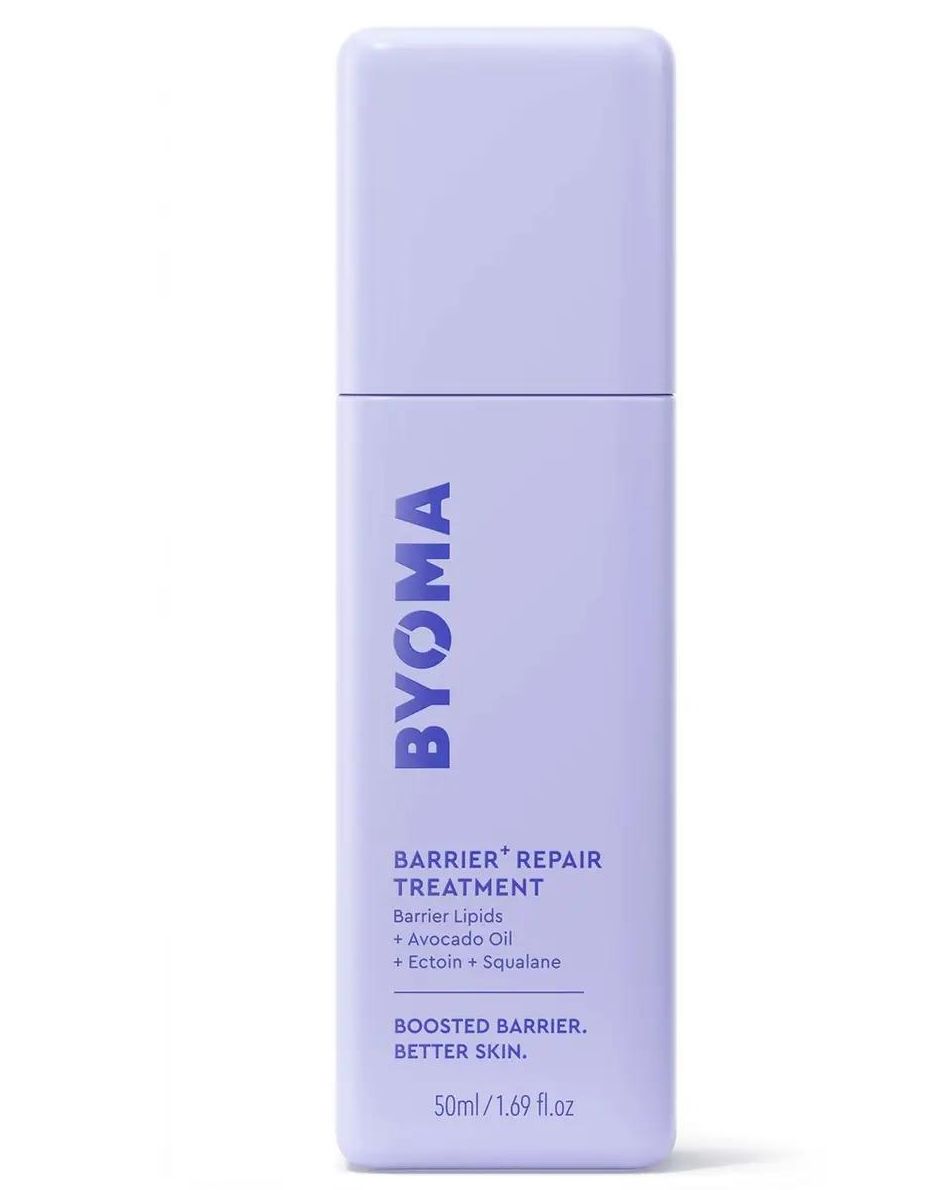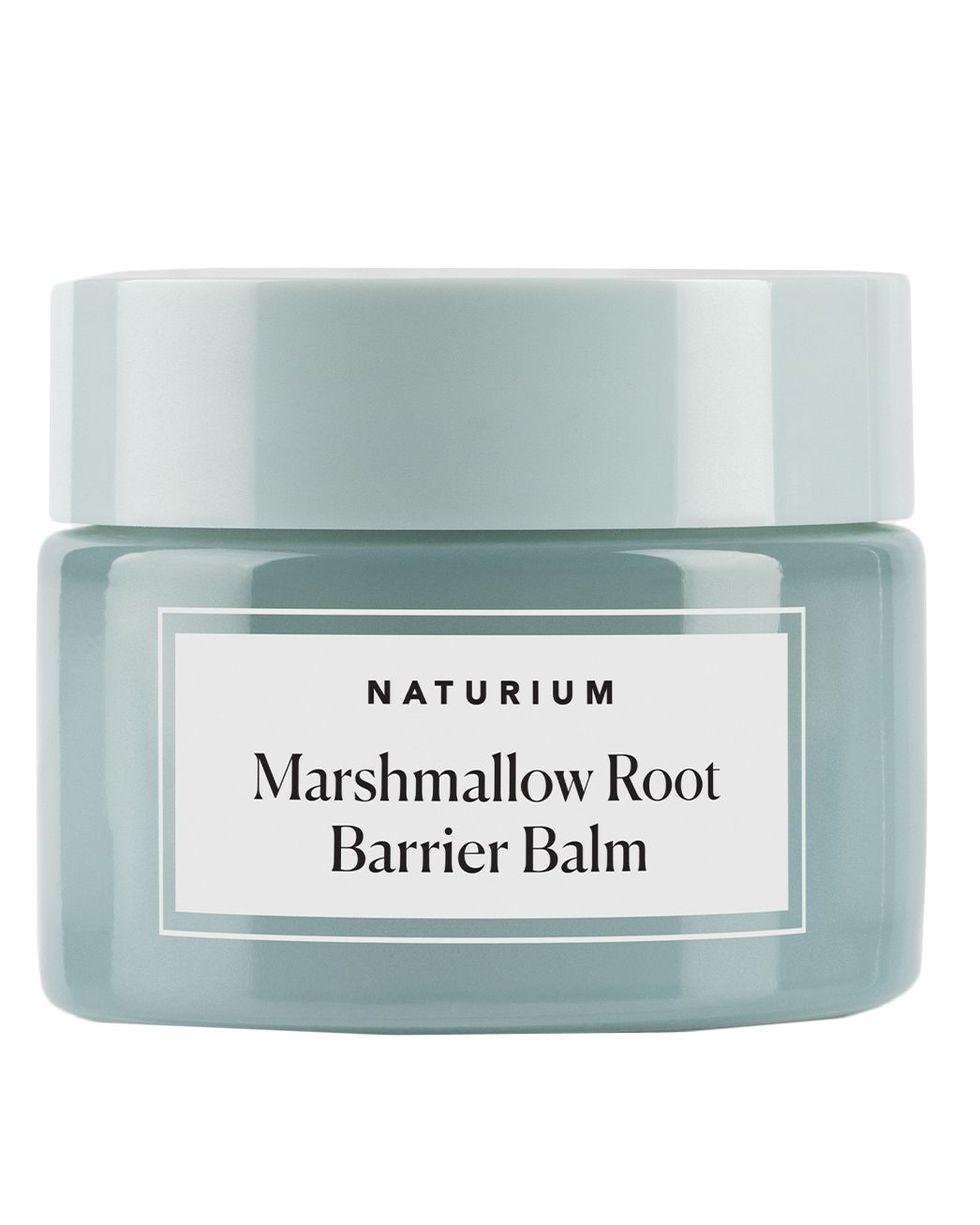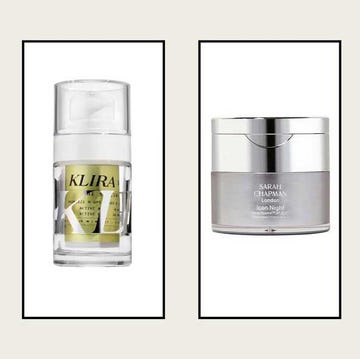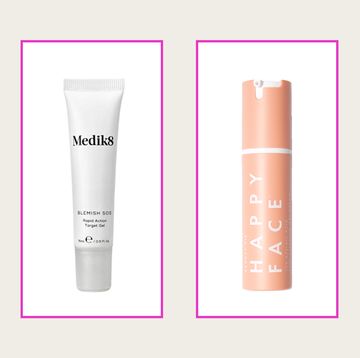From children running riot in Sephora to Kim K coming to the defence of sun beds, the saturated world of online beauty has proven, once again, that many of us just don't know enough about our skin barrier. Whether it's leaving our faces red raw after investing in a potent acid under the guise of instant results, or liberally sanding away our skin with the help of harsh physical scrubs, we know the feeling of a damaged skin barrier all too well, and put bluntly, it's the worst.
But a damaged skin barrier isn't just down to skincare overuse. If you're suddenly faced with dryness, redness and uncomfortable irritation, there are a plethora of causes to look at, from the environment to your sleep. You wouldn't be alone, either; the #skinbarrier has amounted 6.6 billion views on TikTok and counting.
Whether you're seeking relief from a 'broken' skin barrier or you just want a timeline for getting it back to 'normal', here is everything you need to know about repairing a damaged skin barrier...
First, What Is Your Skin Barrier?
'The skin barrier is the uppermost layer of our skin, also known as the stratum corneum,' explains Dr. Alexis Granite. 'This is the skin (and the body's) first line of defence against pollution, UV rays, water loss and inflammation, irritants and infection. The skin barrier is composed of dead skin cells held together by a lipid glue composed of ceramides, cholesterol, and fatty acids. Together this bricks and mortar composition helps keep the deeper layers of the skin hydrated and protected.'
In short, the skin barrier refers to the cells on the surface of your skin and the bonds that hold it in place. It's the outward-facing layer that showcases your skin's condition, from a covetable glass skin glow to an aggressive redness flare up. Why? Because it's also the area that carries moisture, according to Dr. Angela Tewari, hence why it effects the hydrated look and sense of comfort in your skin when it's at its best.
What Are The Symptoms Of A Damaged Skin Barrier?
If you're reading this article, the chances are you're already experiencing some of the tell-tale signs of a damaged skin barrier: discomfort and obvious textural changes.
'You’ll know if your skin barrier is damaged by the fact that your skin may look tired and dry or you may have breakouts of acne or itchy skin,' says Tewari. 'Some of these things are genetics; some people may be more prone to getting acne or more prone to getting drier skin but there are ways of optimising our skin barrier.'
Dr. Granite also sites dullness, redness, discolouration and even dermatitis as symptoms of a damaged skin barrier. 'Not all skin conditions are caused by a damaged skin barrier, but when the barrier is healthy, skin should look and feel as it typically does,' she says.
What Are The Causes Of A Damaged Skin Barrier?
'If we think about the external causes, environmental factors such as pollution or dirt, which can cause oxidative stress on the skin, will contribute to skin barrier damage. Sunshine (UVB and A) will also cause skin barrier damage,' says Tewari. 'If we think about internal factors, being poorly hydrated, poor nutrition, these are two other factors that will affect your skin barrier. Also as we age, skin barrier tends to be held less tightly so the junctions tend to be looser which means damage can get in and the skin cells don’t fit so well together.'
And there's more. Skin allergens, stress, and lack of sleep are also common causes of skin barrier damage. Not to mention the rising epidemic of over-cleansing and over-exfoliating. Worried that harsh acids and liberal retinol usage has messed up your skin? Read on...
Can Too Much Skincare Damage Your Skin Barrier?
The number one question that finds its way over to the ELLE UK beauty desk and beyond is: 'how do I fix my skin after a skincare-induced reaction?' Whether it's a highly concentrated AHA or an eager rush into retinol, it's no secret that active ingredients can wreak havoc on your skin barrier when used incorrectly.
BYOMA founder Marc Elrick reports an alarming rise of younger consumers reaching for actives which are unsuitable for their skin too (something we've witnessed heavily through the lens of TikTok recently).
'The overuse of skincare and over-exfoliation mean we’re seeing more and more skin issues than ever before,' he says. 'People are searching for short term, quick fixes that cause more harm than good. People have long been taught and now assume that the higher the percentage of actives, the better results they will get – which, with improper use, can wreak havoc on the skin barrier. Over 70% of people globally believe that their skin is sensitive. And with symptoms of dryness, redness, and irritation, it’s easy to mistake sensitised skin and the signs of a broken skin barrier for sensitivity.'
And our experts heavily agree. 'Active ingredients have many incredibly positive effects on the skin including improving cell turnover, antioxidant and anti-inflammatory benefits, improvement in skin texture and tone, stimulation of collagen and elastin production. However, when overused, particularly in the case of stronger actives such as retinol and exfoliants, these ingredients can cause a disruption to the skin barrier and an imbalance in skin metabolism,' explains Granite.
Tewari says that the biggest mistake we can make is to rely on instant results when it comes to skincare. If you find your skin is overly sensitive, sensitised or reactive, there's a high chance that your skin barrier may be 'broken' and it's time to reevaluate your skincare routine.
How Long Does It Take To Repair Your Skin Barrier?
Annoyingly, while most skincare mistakes are instant, the road to repair is much steadier and it depends heavily on your skin type, the causes of damage and the products used for recovery. Granite says that by the 2-4 week mark, your skin barrier should be feeling back on track.
'The good thing is that it’s very quick to repair your skin barrier,' Tewari agrees. 'Generally within 24-48 hours, you will notice that feeling of comfort and that your skin looks healthy and hydrated after using various topical products. If after longer than that you find areas of the skin are still causing an issue or there is an infection on the skin, then you know your skin barrier still needs to replenish.'
How To Repair Your Skin Barrier
While it's not the most exciting answer in the world, simplifying your skincare routine is our experts' go-to method of repairing your skin barrier.
'I recommend paring back your routine and sticking with the basics when your skin barrier has been compromised. A gentle cleanser, moisturiser and sunscreen are likely all that is needed until the skin settles down, as well as staying well hydrated,' says Dr. Granite.
Dr. Tewari also recommends getting a number of vitamins onto your skin internally through the digestive system (A, C, D , E and B) by certain vegetables and fruits but also by supplements. 'Antioxidants are essential but you need to be careful how you use these. They are very good as well as replenishing moisturising agents so humectants such as urea and even glycerin that can really help,' she adds.
The Best Skin Barrier Repair Products
TikTok is giving barrier balms their own moment in 2024, but are they actually an essential for a damaged skin barrier and what do we need to know about them?
'I do love barrier balms but I want ones that actually contain other agents that can replenish moisture in the skin, not just a petroleum based product such as Vaseline,' says Tewari. 'It has its advantages in other situations, but to use something like slugging overnight to feel hydrated. You want products that are thick so ointment based products, those that can retain moisture. Those that contain urea, glycerin, ceramides will be helpful so the CeraVe Advances Repair Ointment is a good example.'
Finding an SPF and moisturiser that works for you should also be top of your priority list when paring back your everyday skincare routine. Granite's top picks are the CeraVe Daily Moisturising Lotion, as well as the La Roche Posay Toleriane Range.
Can You Permanently Damage Your Skin Barrier?
The good news is that nothing is permanent when it comes to your skin barrier.
'It is very difficult to permanently damage your skin barrier unless you have a cause or prone to a type of cause that can damage your skin barrier. However, it’s important that you see a dermatologist to really understand what’s causing your skin barrier concerns. For example, can we use a number medicated or cosmetic products to replenish your skin barrier? Or do we need to think about other causes? Do you have inflammatory skin condition?'



